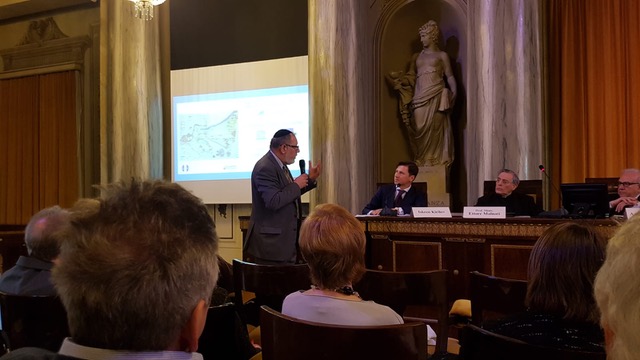
In 2019 the EU’s political agenda is shaped by the renewal of the European institutions, which started with the European elections of 23-26 May and will continue with the nomination of the President of the European Commission and the College of Commissioners, and the appointment of a new President of the European Council and a new President of the European Central Bank. Ahead of the new institutional cycle, the European Council is setting out the EU’s new strategic agenda fro the period 2019-2024, the first draft of which will be issued in early June 2019. One of the important themes the renewed EU’s institutions should deal with is the on-going enlargement process. The European Commission’s Western Balkans Strategy of February 2018 provided a major boost for the region’s European path. It reconfirmed the future of the
Western Balkans as an integral part of the EU. At the EU-Western Balkans summit, which took place in Sofia in May 2018, EU leaders reiterated their unequivocal support for the European perspective of the Western Balkans, and the Western Balkan partners recommitted to this perspective as their firm strategic choice. In response to the Commission’s recommendations of 2018 to open accession negotiations with the Republic of North Macedonia and with the Republic of Albania, the Council agreed to respond positively to the progress made and set out the path towards opening accession negotiations with the two
countries in June 2019.
In parallel with this institutional process, multiple initiatives have been conceived with the purpose of bringing the Western Balkan countries closer to the EU. One of them is the creation of a Euro-Balkan University with headquarters in Trieste. It has been promoted by the International Institute of Human Rights Studies and supported by the European Economic and Social Committee. The choice of Trieste is motivated by its historical importance as a point of convergence and a crossroad of knowledge and culture between the
East and the West. The initiative was launched on 10 of May, as part of the preparation of the EuroScience Open Forum 2020, which will be host by Trieste. All speakers highlighted the importance of accelerating the transfer of the acquis communautaire to the Western Balkan countries, with a particular attention to the Rule of Law, fundamental rights, a proper functioning of the democratic institutions, public administration reform, solid economic governance and attractive investment climate. The transfer and the adequate implementation of the European legislations and rules should be accompanied by an increased cultural and inter-religious dialogue which will help to overcome the conflicts from the past and consolidate the Western Balkans as a region of peace, security and prosperity.
Bektashi World Headquarters’ Office in Brussels
